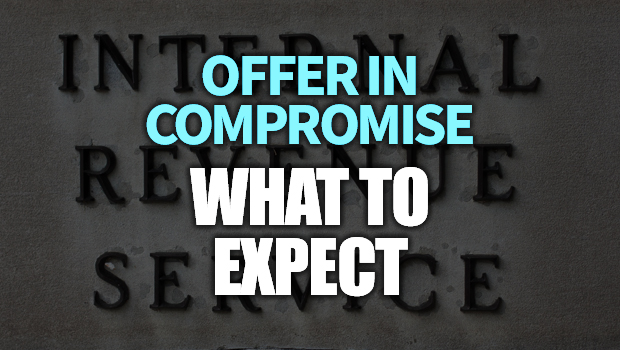The IRS is a tenacious debt collector. Even if you file bankruptcy, not all of your tax debts may be dischargeable. Because of how challenging it can be to deal with tax debts, the idea of paying off a tax debt for less than what you owe sounds very appealing. Luckily, the IRS has something for taxpayers called an offer in compromise.
Paying Off Your Tax Debt With an Offer in Compromise
An offer in compromise (OIC) is an IRS program where the IRS agrees to wipe away someone’s tax debt for less than what’s owed. Sounds great, and it is if you can get it. That’s because the IRS has the discretion to accept or refuse a taxpayer’s OIC request, even if the taxpayer meets basic eligibility requirements.
How Does the IRS Decide Whether to Accept an OIC?
There are three major reasons why the IRS may decide to accept a taxpayer’s OIC. First, it’s when the IRS understands that collecting the tax debt would result in an unreasonable economic hardship on the taxpayer.
Second, the taxpayer lacks the financial ability to pay off the entire tax debt. The IRS realizes they don’t need to waste their time and money trying to collect an entire debt from someone who honestly can’t pay all of it.
Third, there are questions as to the validity of the tax debt. This uncertainty can relate to the amount of the tax debt or the legal basis for owing the tax debt. In either situation, the IRS doesn’t want to spend the time and money to litigate a tax case they could easily lose.
One thing to keep in mind about this third reason is that it applies to an OIC – Doubt as to Liability. This is an alternative to the regular OIC process involving the unreasonable hardship or lack of financial ability reasons. When applying for a regular OIC, the taxpayer is accepting the validity of the tax debt.
Applying for a Regular OIC
The first step in asking the IRS to accept an offer in compromise is to see if you’re eligible to apply. The basic eligibility requirements for individual taxpayers include:
- Filing all required tax returns
- Making all necessary estimated tax payments
- Not filing bankruptcy
Step two requires you to complete the OIC application. The primary components of the application for a regular OIC include:
- Form 433-A (OIC) (for individual taxpayers)
- Form 656
- A non-refundable $205 application fee
- An initial payment
The initial payment represents the first payment toward the amount offered to the IRS for the OIC. Depending on how you structured your offer, this initial payment will usually be either 20% of your total offer amount or the first month’s payment in your periodic payment offer.
If you meet the low-income certification guidelines, you won’t have to pay the application fee or make an initial payment.
Step three deals with the IRS considering your offer and making a decision. The IRS has two years to make this decision. If they don’t, the law will deem your offer automatically accepted by the IRS. During this potential two-year period, the IRS will expect you to continue making periodic payments in accordance with your OIC offer. However, outside the possibility of a tax lien, the IRS will suspend other tax collection activities against you involving this tax debt.
What Happens if the IRS Rejects My OIC?
You can appeal the IRS’ decision. To do this, you’ll have 30 days to submit Form 13711. The IRS can have several reasons as to why they might reject your OIC. But one of them could be that your offer was too low. Broadly speaking, the IRS won’t accept an offer unless it’s at least equivalent to your net worth plus whatever cash you have left over each month after paying for necessities (multiplied by 12).
Need Help With an OIC?
The OIC application process isn’t an easy process and has potential disadvantages. To learn more about the OIC process and if it’s right for you, contact a tax professional, such as a CPA or tax attorney.
The good news is Kienitz Tax Law is here to help you with your tax issues. Schedule your FREE consultation today!

